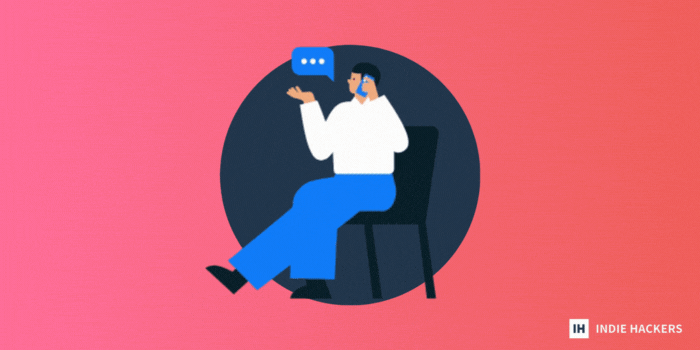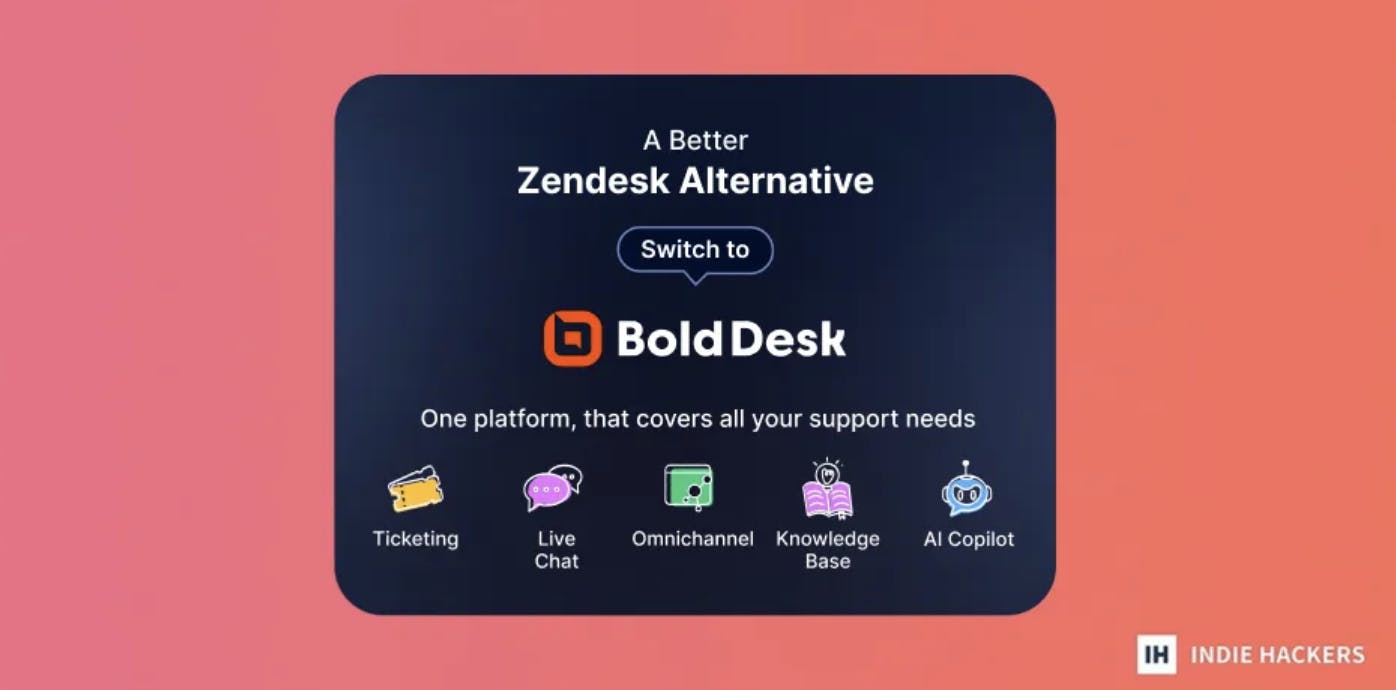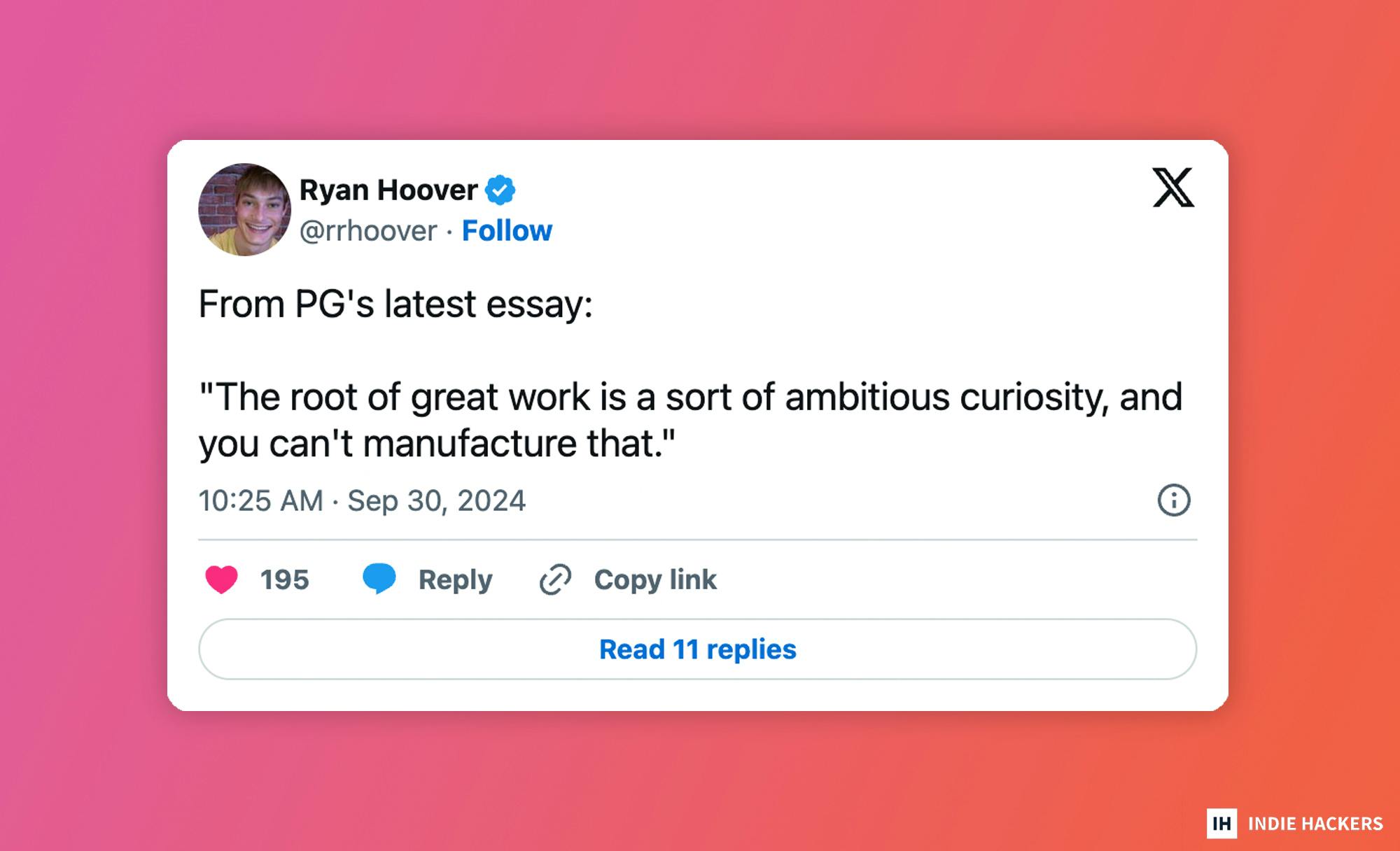What's New: The IH community's revolt against Product Hunt
(from the latest issue of the Indie Hackers newsletter)
Here's what you'll find in this issue:
- Product Hunt's week went from bad to worse, starting with the resignation of a top exec, and ending in a straight up rebellion.
- Y Combinator funded a startup that copied another startup's codebase. Now people are asking whether YC is in decline.
- $1M ARR, then an acquisition. Mike Carson is rebuilding the first social network while tapping into his strengths as an introvert.
Want your product seen by over 105,000 founders and businesses? Sponsor an issue of the Indie Hackers newsletter. Choose between 3 affordable tiers that can fit almost any budget.
You can also run a native website ad on the Indie Hackers homepage for an entire week.
Indie hackers stage a revolt against Product Hunt 🙅

Product Hunt’s wild week began with the sudden resignation of Jason Levin (Head of Growth), and continued in full force this weekend, with a mass indie hacker revolt led by Nico Jeannen.
The uprising began with a tweet from Nico, decrying that Product Hunt has “turned to sh*t” after his newest launch, Landing Analyze, was not featured.
The response from indie hackers was overwhelmingly supportive. Tibo, Product Hunt’s 2022 Maker of the Year, describes Product Hunt as nothing more than a SEO tool.
Nico has a theory about why Product Hunt is leaving indie hackers out in the cold.
A better Zendesk alternative, 50% of the cost 💻
This issue is sponsored by Syncfunction
BoldDesk: The best Zendesk alternative for customer support, all at up to 50% cost savings! It includes a suite of tools to manage and optimize your customer support:
- Ticketing system: Easily track, manage, and resolve customer issues.
- Live chat: Engage with customers in real time to provide quick support.
- AI copilot: Reduce support volume and increase efficiency with generative AI and automations.
- Knowledge base: Create a self-service portal where customers can find answers to common questions.
- Omnichannel inbox: Handle customer inquiries from social media directly within BoldDesk (WhatsApp, Facebook, Instagram, and Voice).
- Task management: Create and manage all tasks associated with resolving a ticket.
- Seamless migration: Enjoy a hassle-free switch from Zendesk with our free migration service.
Ready for a smarter, more affordable solution?
The AI startup drama that's damaging Y Combinator's reputation 🤖

A Y Combinator startup sparked a huge controversy almost immediately after launching. The startup was PearAI, an open-source AI code editor. When people looked at its code they found that it was a clone of an existing open-source project called Continue.dev.
As with many controversies in startup land, it was less about the crime and more about the cover-up. The controversy also grew to encompass Y Combinator itself, and now people are asking if the famous startup accelerator's best days are behind it.
Here's everything you need to know about the YC drama.
In the news 📰

👾 Discord opens its ecosystem of apps and games to all developers.
📈 Ad costs are going up.
💲 Link to your product here. Our most affordable ad.
😂 Humor in advertising can cue more than laughter.
🏛️ Epic is suing Google (again), and now, Samsung.
💒 How Las Vegas became the world's quickie wedding capital.
Rebuilding the first social network after a life-changing exit 🛠️

Mike Carson side hustled until one project became a quick, resounding success at $1M ARR. After selling it, he quickly started two new projects: Spaces Protocol and Friendster.
Yes...that Friendster: The first social network. It's a throwback to a fun internet era when people truly enjoyed connecting, and social media companies weren't run by advertisers.
Here's how Mike came to own that domain, and what he plans to do with it.
Courtland's tweet pick 🐦
Enjoy this newsletter? 🏁
Forward it to a friend, and let them know they can subscribe here.
Also, you can submit a section for us to include in a future newsletter.
Special thanks to Jay Avery for editing this issue, to Gabriella Federico for the illustrations, and to Stephen Flanders, Darko Gjorgjievski, and James Fleischmann for contributing posts. —Channing


